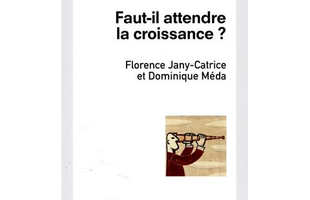Directora :
Dominique MEDA
Equipo directivo :
Eric AGRIKOLIANSKY
Sophie BERNARD
Emmanuel HENRY
Marc-Olivier DÉPLAUDE
Thierry KIRAT
Sabine MONTAGNE
Isabelle VEYRAT-MASSON

Quand les dispositifs publics se mettent en action Sophie BERNARD, Dominique MEDA, Michèle TALLARD (...)

La semaine de 4 jours, c'est possible Auteurs | Pierre LARROUTUROU et Dominique MEDA Ed. Les Editions de (...)

Coordonné par Bruno Palier et Romain Roussel Revue française des affaires sociales Ed. La documentation (...)

Par Florence Jany-Catrice et Dominique Méda Editions La documentation française

"Actes de la recherche en sciences sociales" n°211-212 Numéro coordonné par Choukri HMED, Maitre de (...)